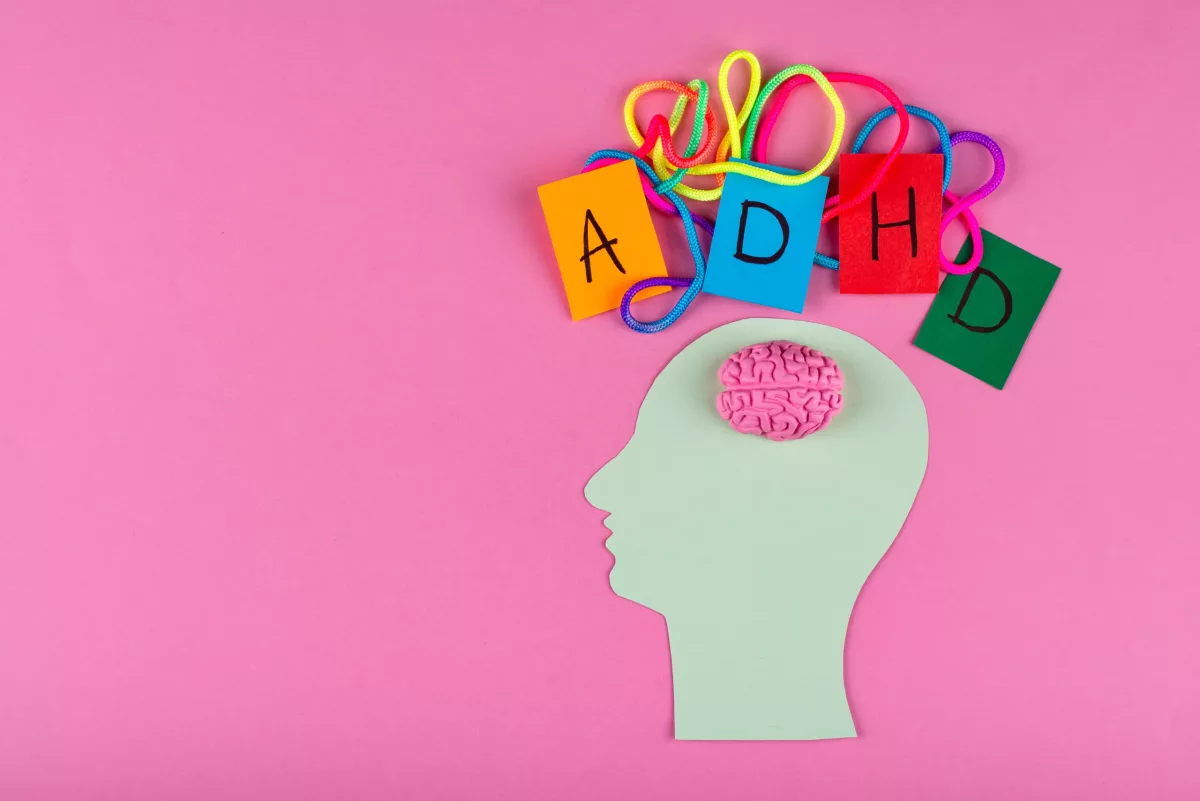A mental health condition that includes multiple persistent problems (such as difficulty paying attention, hyperactivity, and impulsive behavior) is called attention-deficit/hyperactivity disorder (ADHD). When this mental disorder occurs in adults, it may cause relationship problems, poor work or school performance, low self-esteem, and other problems. Commonly, ADHD begins during childhood and continues into adulthood.
In some cases, this mental disorder may not be diagnosed until adulthood. However, hyperactivity may decrease in adults, but struggles with difficulty paying attention, restlessness, and impulsiveness may continue.
Generally, the treatment for ADHD is similar for children and adults. These include medicines, psychological counseling (psychotherapy, also known as talk therapy), and other treatments for certain mental disorders that may occur along with ADHD.
Symptoms
While some people experience fewer symptoms with age, others continue to have major symptoms that may interact with their daily routine. In general, the symptoms can range from mild to severe and include difficulty paying attention, restlessness, and impulsiveness.
However, a lot of people with this mental disorder are not aware they have ADHD. The only thing they can notice is that daily tasks become a challenge. Usually, adults with this mental condition find it difficult to focus and prioritize, which causes missed deadlines and forgotten meetings. Moreover, if a person is unable to control impulses, it may lead to impatience waiting in line or driving in traffic or mood swings, and outbursts of anger. Check below some ADHD symptoms:
- Impulsiveness
- Disorganization
- Poor time management skills
- Difficulty focusing on a task or multitasking
- Hyperactivity or restlessness
- Poor planning
- Low frustration tolerance
- Multiple mood swings during the day
- Hot temper
- Trouble overcoming stress
Almost all people experience ADHD symptoms at some point in their lives. When difficulties are recent or happen occasionally, in not mean you have ADHD. Commonly, doctors diagnose this mental health problem when the symptoms are severe and interfere with daily routine.
Sometimes, the diagnosis of ADHD can be challenging because there are other mental disorders (such as anxiety) that cause similar symptoms. Moreover, in most cases, people have more than one mental disorder.
If you experience any of the previous symptoms or others that cause concerns, immediately contact your healthcare provider.
Causes
Healthcare providers do not fully understand why ADHD happens, but research continues. However, they have identified some things that could be involved in ADHD development. For example:
- Genetics – There are some genes that could play a role in ADHD.
- Environment – Some environmental factors may contribute to ADHD. For example, lead exposure as a child.
- Developmental problems – There are some problems with the central nervous system, which may also play a role in ADHD.
Risk Factors
The following factors significantly elevate the risk of developing attention-deficit/hyperactivity disorder. Examples include:
- A family history of ADHD – Sometimes, this condition runs in families and may be passed to children. For example, if you have a parent or sibling with this mental disorder, your risk of developing it increases.
- Smoking or drinking alcohol during pregnancy
- Premature birth
- Exposure to certain environmental toxins during childhood
What Are The Possible Complications of ADHD?
This mental disorder usually interferes with your daily routine. As a result, you may experience multiple problems. For example:
- Reduced performance at work or school
- Financial problems
- Unemployment
- Heavy alcohol drinking or other substance misuse
- Problems with the law
- Frequent car accidents
- Relationship problems
- Poor mental and physical health
- Low self-esteem
- Suicidal thoughts or even behavior
Additionally, most people with ADHD also have other mental disorders. For example:
- Mood disorders – These include bipolar disorder, depression, and others. Moreover, ADHD symptoms may worsen depression.
- Anxiety disorders – This type of mental disorder happens frequently in people with ADHD.
- Other psychiatric disorders – People with ADHD are at higher risk of other psychiatric disorders. These include personality disorders, intermittent explosive disorder, substance use disorders, and others.
- Learning disabilities – Usually, those who suffer from this mental disorder score lower on academic testing than is expected for him/her age. This condition may also cause problems with understanding and talking.
Diagnosis
Usually, it is difficult to spot symptoms of ADHD in adults. This condition often causes symptoms during childhood (before 12 years old) and may continue into adulthood. Unfortunately, there are no tests that can confirm ADHD. Therefore, doctors will perform some tests to exclude other conditions that cause similar symptoms. For example:
- A physical examination – This procedure is used to rule out other causes for the symptoms.
- Information gathering – It involves questions about your symptoms, medical and family history, and existing health problems.
- Psychological tests – These tests help doctors get more information about your symptoms.
In addition, there are a lot of health conditions that may cause symptoms similar to ADHD. For example:
- Mental health disorders – Examples include depression, anxiety, conduct disorders, learning and language deficits, and other psychiatric disorders.
- Some diseases that affect behavior and thinking – For example, developmental disorder, seizure disorder, thyroid problems, sleep conditions, brain injuries, and hypoglycemia (low blood sugar).
- Medicines and drugs – These include misuse of alcohol, illegal drugs, and certain medications (such as opioids).
Treatment
The primary treatments for people with ADHD involve medicines and psychological counseling. A combination of these treatments is usually the most effective treatment.
Medicines
- Stimulants – Doctors usually recommend Methylphenidate or Amphetamine. These medications work by boosting and balancing certain brain chemicals (neurotransmitters).
- Other medicines – Healthcare providers may also prescribe a non-stimulant called Atomoxetine and some antidepressants (such as Bupropion). While previous medicines work more slowly than stimulants, they are an option if you cannot administer stimulants.
Psychological Counseling
This treatment involves talk therapy (also called psychotherapy), education about the disorder, and learning skills that help to cope with the symptoms. Usually, psychotherapy helps people with ADHD to:
- Improve the recovery time from the disorder
- Learn specific techniques that help improve behavior
- Develop better problem-solving skills
- Overcome past academic, work, or social failures
- Improve self-esteem
Moreover, check below the most common types of talk therapy often prescribed for people with ADHD:
- Cognitive behavioral therapy – This therapy is used to teach skills to manage behavior and negative thinking in people with ADHD.
- Marital counseling and family therapy – This treatment option is often recommended for couples to cope with the stress of living with someone with ADHD.
Frequently Asked Questions
What is the best lifestyle for people with ADHD?
Check below some tips that may improve the symptoms and quality of life if you have ADHD:
- Adopt a balanced diet
- Manage stress and chronic health conditions
- Perform regular physical exercise
- Healthy sleep
- Social support
For more details, consult with your doctor.
What does ADHD do to a person?
This is a mental disorder that causes difficulties with organization, self-control, and focus, which often leads to poor academic performance and other problems. Do not hesitate to see a doctor if you think you or a loved one has ADHD.
What are the long-term effects of attention deficit disorder?
People with ADHD may experience some complications, especially without treatment. For example:
- Relationship problems
- Substance abuse
- Occupational and academic underachievement
- Other mental disorders
- Isolation
- Reduced self-esteem
- Poor mental and physical health
- Financial problems
This article does not contain all possible complications of attention-deficit/hyperactivity disorder. Ask your healthcare provider if you have additional questions.




